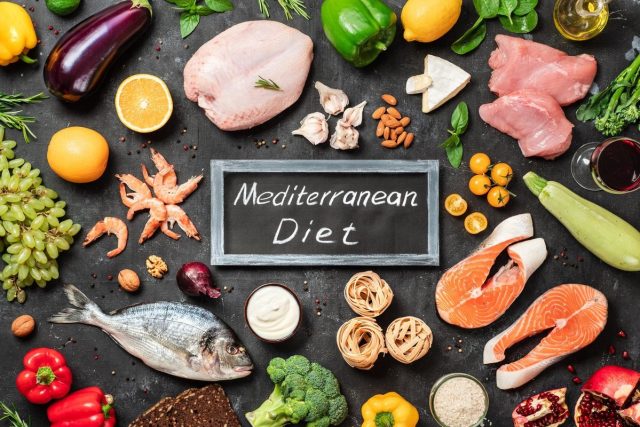Each 2-point increase in Mediterranean diet score linked to significantly lower all-cause mortality
By Elana Gotkine HealthDay Reporter
WEDNESDAY, July 10, 2024 (HealthDay News) — For cancer survivors, higher adherence to a traditional Mediterranean diet (MD) is associated with a reduction in all-cause mortality, specifically cardiovascular mortality, according to a research letter published online July 2 in JACC: CardioOncology.
Marialaura Bonaccio, Ph.D., from IRCCS Neuromed in Pozzilli, Italy, and colleagues clarified the role of a traditional MD with respect to mortality among Italian long-term cancer survivors. Data were obtained from the Moli-sani Study, a population-based cohort including 24,325 men and women aged 35 years and older. A total of 802 cancer survivors were included; dietary intake was assessed during the preceding 12 months using a semiquantitative food frequency questionnaire. An MD score (MDS) was used to measure adherence to a traditional MD.
The researchers found 248 all-cause deaths were recorded during 12.7 years of follow-up (9,279 person-years), including 59 cardiovascular deaths and 140 from cancer. Of the cardiovascular deaths, 25.4 and 23.7 percent were due to ischemic heart disease and cerebrovascular disease, respectively. Each 2-point increase in the MDS was associated with significantly lower all-cause mortality rates in multivariable-adjusted Cox regression analyses (hazard ratio [HR], 0.84; 95 percent confidence interval [CI], 0.71 to 0.99). After adjustment for variables associated with both the exposure and the outcomes, HRs per 2-point increment in the MDS were 0.69 (95 percent CI, 0.49 to 0.97) for cardiovascular disease mortality and 0.91 (95 percent CI, 0.73 to 1.12) for cancer death.
“Our findings suggest maintaining or adopting a traditional MD even after a cancer diagnosis may be beneficial,” the authors write.
Copyright © 2024 HealthDay. All rights reserved.



















